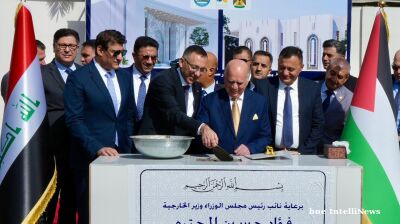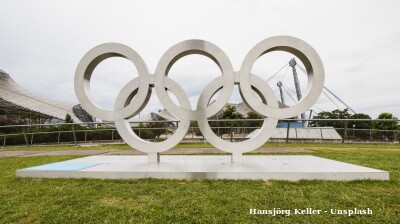Diplomatic tensions have flared between Washington, Tel Aviv, Tehran and Mexico City over allegations that Iran plotted to assassinate Israel's ambassador to Mexico, Einat Kranz-Neiger, a claim that remains unsubstantiated and has been met with conflicting official responses.
The Quds Force, the overseas operations arm of Iran's Islamic Revolutionary Guard Corps, initiated plans in late 2024 to target the Israeli envoy, according to unnamed US and Israeli officials cited by AP. The operation remained active until mid-2025 when it was "contained" by Mexican authorities with assistance from US and Israeli intelligence services, the officials said, without providing specific details or evidence.
Israeli officials publicly thanked Mexico’s security and law enforcement agencies for “thwarting a terrorist network directed by Iran." The Israeli Ministry of Foreign Affairs said its intelligence community would continue to cooperate internationally “to thwart terrorist threats from Iran and its proxies”. Ambassador Kranz-Neiger told Radio Fórmula, that she had “never felt directly threatened”, adding that Mexican authorities had “acted and frustrated” a potential attack.
However, Mexico’s position sharply contrasted with these statements. Its foreign and security ministries issued a joint declaration saying they had “no report with respect to a supposed attempt against the ambassador of Israel in Mexico”, as reported by AP. The government reaffirmed that it remained open to “respectful and coordinated cooperation” within the framework of national sovereignty. Mexico’s denial has not been addressed by US officials, who said Iran’s alleged international plots were “inconsistent with the behaviour of a civilised state”.
The alleged plan has been linked to Iranian officer Hasan Izadi—also known as Masood Rahnema—who, according to El País and Axios, served as an aide at Iran’s embassy in Venezuela. Western intelligence sources cited by those outlets claim Izadi coordinated the plot while travelling across Latin America and maintaining contact with Hezbollah operatives. These reports also mention Unit 11000, an IRGC cell allegedly responsible for recruiting agents to target Israeli and US officials in the region.
For its part, Tehran has rejected the accusation. Iranian Foreign Ministry spokesman Esmaeil Baghaei Kani described it as “ridiculous” and “absurd”, claiming that the story was designed to “destroy Iran’s friendly relations with other countries”. Iran’s embassy in Mexico called the allegations a "major media lie designed to damage the friendly and historic relations between the two countries."
An Al Jazeera report also noted that Iranian officials linked the incident to previous claims by Israel about Tehran’s involvement in attacks on Jewish targets abroad, which Iran has consistently denied.
The United States and its allies have a history of accusing the IRGC of overseas plots. In August 2024, Australia expelled Iran’s ambassador and designated the IRGC a terrorist organisation after accusing Tehran of directing two arson attacks on Jewish sites in Sydney and Melbourne, as reported by AFP.
No physical evidence or public intelligence assessments have yet confirmed the alleged conspiracy in Mexico. For now, the episode remains defined by diplomatic statements and anonymous briefings.
The absence of corroborating evidence, combined with Mexico’s categorical denial, leaves open whether this represents a genuine security threat or a continuation of the broader intelligence and propaganda contest between Iran, Israel and their allies.
News

Istanbul-listed Investco, Verusa and Pamel seized in market manipulation prosecution
Market chatter and tensions over rash of business investigations and arrests in Turkey grows louder.
.jpg)
EU-Latin America summit confronts trade tensions and regional divisions
The EU and Latin American nations concluded their fourth summit on November 9 with a 52-point declaration championing multilateralism and containing veiled critiques of US policy.

Russian Lukoil declares force majeure on Iraqi oil
Lukoil, Russia’s second-largest oil company, has declared force majeure on its operations at the West Qurna-2 oil field in Iraq due to the impact of US sanctions

Water shortages reported across Iran's capital as day zero approaches
Iran's water industry spokesman says any planned water restrictions for Tehran residents will be announced in advance. Policy is to manage pressure from midnight to morning, with 10% consumption reduction target through public cooperation.
_1762772645.jpg)
.jpeg)


